You want to do good but also generate profit. What kind of entity makes sense for you? Many founders are asking this question, and in the last two decades, institutions have created tools to support such founders. You may have heard terms like “Benefit Corporation” and “Certified B Corp” tossed around. Read more to learn what those are and how they differ.
What is a Benefit Corporation?
A benefit corporation (also known as a “public benefit corporation” in many states) is a legal entity type that a for-profit business may register as when it forms if it pursues a public benefit purpose (e.g., a positive social or environmental impact).[1] The registration processes and requirements for these entities can differ amongst states, so consult with an attorney licensed to practice in your state if you have any questions about state-specific matters.
In Washington, D.C., benefit corporations are largely formed in the same manner as traditional for-profit corporations. Benefit corporations must, like traditional for-profit corporations, file articles of incorporation with the District of Columbia’s Corporations Division, have directors who manage the corporation's affairs, adopt bylaws governing the management of the business, and follow other generally applicable corporate guidelines.[2] However, benefit corporations must also have general or specific public purposes and state that they are benefit corporations in their articles of incorporation.[3] Registering as a benefit corporation also creates certain legal obligations and protections that do not exist for traditional corporations; these are described below.
Why might I form a Benefit Corporation?
In my experience, some benefit corporations find that this corporate form is a way of signaling to potential customers, investors, partners, and others that they prioritize social and environmental objectives. Additionally, by registering as a benefit corporation, entities gain legal protection to balance financial and non-financial (i.e., public purpose) interests when making business decisions. The shareholders of a benefit corporation may compel the entity to uphold its public purpose. This right is in addition to the rights of shareholders of traditional D.C. Corporations.
The shareholders of both traditional D.C. corporations and D.C. benefit corporations may, on behalf of the corporation, sue the corporation’s directors or officers or other parties who breach their duties to the corporation.[4] This is called a “derivative suit.” In a traditional corporation, the directors’ and officers’ duties deal largely with managing and overseeing the corporation’s financial affairs.[5] Derivative suits are typically brought in traditional corporations when a director or officer acts against the financial best interests of the corporation, for example, by personally taking advantage of a financial opportunity that the director or officer was obligated to first offer to the corporation.[6] The shareholders of benefit corporations can bring derivative suits and claims on the same grounds as those brought in traditional corporations. However, the shareholders of a benefit corporation can also bring derivative suits or claims in situations in which the benefit corporation or its directors or officers fail to “pursue or create general public benefit or a specific public benefit set forth in its articles of incorporation.”[7] This additional right of action held by the shareholders of benefit corporations creates an obligation for benefit corporations to make decisions that further public benefits. This also provides a benefit corporation the leeway to balance public benefit considerations and financial considerations when determining what is in the corporation’s best interests.
What is a Certified B Corp?
Benefit corporations sometimes apply to become Certified B Corps. Certified B Corps are for-profit entities that have received a certification from a nonprofit organization called B Lab. B Lab describes itself as a “nonprofit network transforming the global economy to benefit all people, communities, and the planet.”[8] Benefit corporations may choose to also become Certified B Corps, but B Corp Certification does not create legal protections or obligations separate or distinct from the legal protections and obligations that come with registering as a benefit corporation or similarly designated entity in its governing jurisdiction.
To be certified by B Lab, an entity must fulfill three main requirements:
-
The entity must meet certain social and environmental performance standards outlined in an impact assessment created by B Lab and pass B Lab’s risk review.
-
The entity must demonstrate in a manner acceptable to B Lab that it is accountable to all stakeholders, not just shareholders. This includes registering the entity as a benefit corporation or similarly designated entity.
-
The entity must agree to allow its performance regarding B Lab’s standards to be publicized on the B Lab website.[9]
Entities certified by B Labs must reapply for certification every three years or when they experience a change in ownership or initial public offering.[10]
Why might I form a Certified B Corp?
Businesses often become Certified B Corps for the marketing and branding benefits that may come with placing the Certified B Corp insignia on their products and publicity materials. B Lab asserts that entities with their certification “build trust with consumers, communities, and suppliers; attract and retain employees; and draw mission-aligned investors.”[11] If you are interested in connecting with existing Certified B Corps to learn about any benefits or challenges they have faced in connection with this certification, you can locate Certified B Corps in your area or industry here: https://www.bcorporation.net/en-us/find-a-b-corp/.
Best of luck changing the world while making money!
[1] D.C. Code § 29–1302.01.
[2] D.C. Code § 29–1301.04.
[3] Id.
[4] D.C. Code §§ 29–303.04, 29-305.50 – 29-305.57, 29–306.31, 29–1303.05.
[5] D.C. Code §§ 29-306.30 – 29-306.32.
[6] D.C. Code § 29–306.31.
[7] D.C. Code § 29–1303.05.
[8] About B Lab, B LAB GLOBAL SITE (Nov. 8, 2024, 12:48 PM), https://www.bcorporation.net/en-us/movement/about-b-lab/.
[9] About B Corp Certification, Measuring a company’s entire social and environmental impact, B LAB GLOBAL SITE (Nov. 8, 2024, 12:48 PM), https://www.bcorporation.net/en-us/certification/.
[10] Id.
[11] Id.
